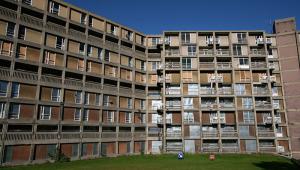Since the onset of austerity, cuts to local government funding have transferred service costs to users who are “least able to pay”, according to Philip Alston, the UN’s special rapporteur.
Alston, who examined UK poverty on a 12-day tour, said local authorities are “even struggling with the basic services they are statutorily obligated to provide”.
This, he said, was just one of the ways the “overall social safety net is being systematically dismantled”.
The UN official referenced the National Audit Office’s finding that local government has incurred a 49% cut in funding since 2010-11, and highlighted the effect this has had, with Northamptonshire County Council’s unprecedented section 114 notices.
Alston said: “Local authorities, especially in England, which perform vital roles in providing a real social safety net have been gutted by a series of government policies.
“Libraries have closed in record numbers, community and youth centres have been shrunk and underfunded, public spaces and buildings including parks and recreation centres have been sold off.
Alston claimed that 14 million people – one fifth of the population – live in poverty, and noted that Institute for Fiscal Studies calculations predict a 7% rise in child poverty between 2015 and 2022.
Despite these factors, Alston claimed ministers were in “a state of denial” about UK poverty.
“The ministers with whom I met told me that things are going well – this is not the story I heard in my travels through Wales, Scotland, Northern Ireland and in quite a few cities in England,” he said.
Other areas in which social security have been undermined include cuts to legal aid and benefit reductions.
A government, however, said it “completely” disagreed with the UN’s analysis.
“With this government’s changes, household incomes have never been higher, income inequality has fallen, the number of children living in workless households is at a record low and there are now one million fewer people living in absolute poverty compared with 2010.
“Universal credit is supporting people into work faster, but we are listening to feedback and have made numerous improvements to the system including ensuring 2.4 million households will be up to £630 better off a year as a result of raising the work allowance.”
Alston’s full report will be presented to the UN Human Rights Council in Geneva next year.










